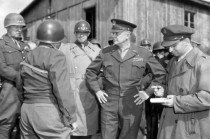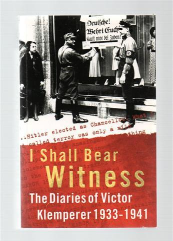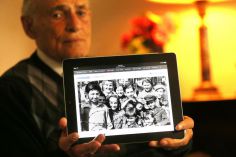Holocaust denial
Holocaust denial
Wikipedia
Holocaust denial is the act of denying the genocide of Jews and other groups in the Holocaust during World War II.[1] Holocaust denial often includes the following claims: that Nazi Germany's Final Solution was aimed only at deporting Jews from the Reich, but that it did not include the extermination of Jews; that Nazi authorities did not use extermination camps and gas chambers to mass murder Jews; and that the actual number of Jews killed was significantly (typically an order of magnitude) lower than the historically accepted figure of 5 to 6 million.[2][3][4]
Scholars use the term "denial" to describe the views and methodology of Holocaust deniers in order to distinguish them from legitimate historical revisionists, who challenge orthodox interpretations of history using established historical methodologies.[5] Holocaust deniers generally do not accept the term denial as an appropriate description of their activities, and use the term revisionism instead.[6] The methodologies of Holocaust deniers are often based on a predetermined conclusion that ignores overwhelming historical evidence to the contrary.[7]
Most Holocaust denial claims imply, or openly state, that the Holocaust is a hoax arising out of a deliberate Jewish conspiracy to advance the interest of Jews at the expense of other peoples.[8] For this reason, Holocaust denial is generally considered to be an antisemitic [9] conspiracy theory,[10] is frequently criticized, and is illegal in several countries. Read more
Holocaust survivor recognizes himself in documentary
Toronto Holocaust survivor sees photo of himself as a boy in recent Israeli newspaper
The Star
By Manisha Krishnan, Staff Reporter
Fri., June 12, 2015
A Holocaust survivor recognized himself and his brother as children in a screenshot from a recently released documentary.
The image is deceptively cheerful.
Taken in April 1945, it shows a dozen or so children smiling through a barbed wire fence. They are prisoners at Bergen-Belsen, a Nazi Germany concentration camp, and they have just been liberated.
Yehuda Danzig, 82, recognized two boys in the picture after it was recently published in the Times of Israel. One was him at the age of 11. The other was his brother Michael, who was 12 at the time.
It was the first and only photo he’d seen of himself as a prisoner.
"I started to cry," says the soft-spoken Danzig. "I couldn’t believe it."
Danzig had been in the kitchen reading the newspaper on his tablet when the black-and-white still frame caught his eye. It was taken from the Holocaust documentary German Concentration Camps Factual Survey, shot at 14 different camps and sites of atrocities in Austria, Germany and Poland, including Auschwitz, after the fall of Hitler.
Though parts of the footage have been shown over the years, the film, directed with the help of Alfred Hitchcock, wasn’t completed until 2014, after the British Imperial War Museums took over its restoration.
Danzig refuses to watch it, but says its existence validates the nightmare he suffered through. Read more
General Eisenhower visits concentration camps
 Dwight Eisenhower, Allied commander-in-chief, speaks with Generals Patton and Bradley at Ohrdurf, a subcamp of Buchenwald. Photo dated April 12, 1945.
Dwight Eisenhower, Allied commander-in-chief, speaks with Generals Patton and Bradley at Ohrdurf, a subcamp of Buchenwald. Photo dated April 12, 1945.
Holocaust Denial, Wikipedia
Immediate post-war period
In 1945 US General Dwight D. Eisenhower, Supreme Allied Commander, anticipated that someday an attempt would be made to recharacterize the Nazi crimes as propaganda and took steps against it:
"The same day I saw my first horror camp. It was near the town of Gotha. I have never been able to
describe my emotional reactions when I first came face to face with indisputable evidence of Nazi brutality and ruthless disregard of every shred of decency. Up to that time I had known about it only
generally or through secondary sources. I am certain however, that I have never at any time experienced an equal sense of shock. I visited every nook and cranny of the camp because I felt it my duty
to be in a position from then on to testify at first hand about these things in case there ever grew up at home the belief or assumption that "the stories of Nazi brutality were just propaganda".
Some members of the visiting party were unable to go through with the ordeal. I not only did so but as soon as I returned to Patton's headquarters that evening I sent communications to both Washington and London, urging the two governments to send instantly to Germany a random group of newspaper editors and
representative groups from the national legislatures. I felt that the evidence should be immediately placed before the American and the British publics in a fashion that would leave no room for
cynical doubt."
Eisenhower, upon finding the victims of the death camps, ordered all possible photographs to be taken, and for the German people from surrounding villages to be ushered
through the camps and even made to bury the dead. He wrote the following to General Marshall after visiting a German internment camp near Gotha, Germany:
"The visual evidence and the verbal testimony of starvation, cruelty and bestiality were so overpowering as to leave me a bit sick. In one room, where they [there] were
piled up twenty or thirty naked men, killed by starvation, George Patton would not even enter. He said that he would get sick if he did so. I made the visit deliberately, in order to be in a position
to give first-hand evidence of these things if ever, in the future, there develops a tendency to charge these allegations merely to "propaganda." Wikipedia
Holocaust denial consists of claims that the genocide of Jews during World War II did not occur at all, or that it did not happen in the manner or to the extent historically recognized. Wikipedia
- Remember The Holocaust Survivors and Victims Resource Center, U.S. Holocaust Memorial Museum
- Telling Stories of The Holocaust, Urban School San Francisco
- Holocaust Learning, Surviving Stories
- Holocaust Survivors website
- Lagazette Deputeaux Histoire
My name is Neil Gillespie and I bear witness to Holocaust Survivors I met from 1978 to 1988.
Survivors were identifiable by the Nazi prison numbers tattooed on their body.
Some had a gaunt appearance and blank facial expression as a result of their trauma.
At that time about 40 years had passed since US troops liberated the Nazi camps in 1945. Some of the Holocaust
Survivors I met were Russian Jewish immigrants. Others were from Eastern Europe and spoke Yiddish. They had come to Pennsylvania to
buy cars at my business and neighboring dealerships.
A number of my employees and colleagues were American WWII veterans who fought against the Axis. As original witnesses to the
The Holocaust die, others must continue to bear witness.
Historical revisionism, Wikipedia
Wikipedia
In historiography, the term historical revisionism identifies the re-interpretation of the historical record. It usually means challenging the orthodox (established, accepted or traditional) views held by professional scholars about a historical event, introducing contrary evidence, or reinterpreting the motivations and decisions of the people involved. The revision of the historical record can reflect new discoveries of fact, evidence, and interpretation, which then provokes a revised history. In dramatic cases, revisionism involves a reversal of older moral judgments.
At a basic level, legitimate historical revisionism is a common and not especially controversial process of developing and refining the writing of history. Much more controversial is the reversal of moral findings, in which what had been considered to be positive forces are depicted as being negative. This revisionism is then challenged by the supporters of the previous view, often in heated terms, and becomes an illegitimate form of historical revisionism known as historical negationism if it involves inappropriate methods such as the use of forged documents or implausible distrust of genuine documents, attributing false conclusions to books and sources, manipulating statistical data and deliberately mis-translating texts. This type of historical revisionism presents a re-interpretation of the moral meaning of the historical record.[1] The term "revisionism" is used by negationists to portray their efforts as legitimate historical revisionism. This is especially the case when it is applied to Holocaust denial. Read more
Example of historical revisionism
Adolf Hitler: The Greatest Story Never Told
Debunking "Adolf Hitler: The Greatest Story Never Told"




































































































































